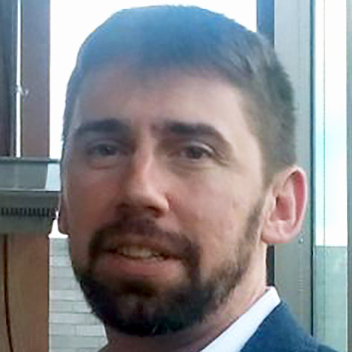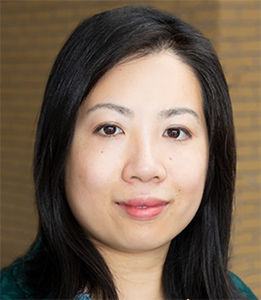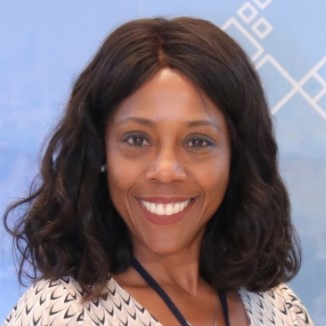
By Elaine Smith
York University, through its talented faculty, contribute to eCampusOntario's virtual learning strategy Open Educational Resources (OER) collection.
In December 2020, the Ontario Ministry of Colleges and Universities unveiled its Virtual Learning Strategy (VLS), an initiative designed “to drive growth and advancement in virtual learning across the province’s post-secondary institutions,” and York University faculty members have been happy to contribute.
The ministry’s calls in 2020 and 2021 for expressions of interest presented instructors with the opportunity to create projects that expand “options for traditional and lifelong learning through the accelerated use of both online and hybrid learning.” VLS project leads are tasked with “fostering collaborative practices and emphasizing reusable and adaptable resources that can be shared through a common repository.” In other words, VLS project leads created open educational resources (OER) and other resources that have been made freely available through eCampusOntario's Open Library.

Robert McKeown, an assistant professor in the Department of Economics, Faculty of Liberal Arts & Professional Studies (LA&PS) answered the call. He joined forces with Catherine Pfaff, an assistant professor in the Department of Mathematics at Queen’s University, and Sumon Majumdar, associate professor and head of the Economics Department at Queen’s University, to create two asynchronous VLS courses to help social science students bridge the gap between high school and university mathematics, probability and statistics. Anita Lam, associate dean, teaching & learning in LA&PS at York University, helped gamify the GAMES: Intro Statistics modules. All members of the York University community can now access the modules via eClass.
“Our aim was to comprehensively cover concepts for a diverse set of learners, whether they are high school students who come to university without a strong background or just want to refresh their knowledge, or mature learners who are looking to upskill,” said Majumdar.
The courses, named GAMES 1 and 2, offer a Gentle Approach to Math, Excel and Statistics. Together they offer a comprehensive and practical refresher for students in the social sciences, economics and business. One module, GAMES: Intro Statistics, has been gamified to enhance student learning and retention.”
“Because of the pandemic and the need to teach online, I gained some experience with digitizing classes, as well as the pros and cons,” said McKeown. “I learned how to create content at home and got a sense of how to create content on a budget.”

The team is making the courses practical, using problems that are relatable, using examples from subjects such as business, politics and sports. Each has multiple modules that allows students to focus on one particular topic at a time and teaches them to interpret data when it appears in social science coursework or in the news in the form of survey data with a margin of error, for example.
To ensure that the courses were understandable and workable with York’s eClass platform, McKeown hired students to review the modules. The statistics module is now live on eClass, with the others rolling out during the year.
“This is an innovative pedagogical and practical approach to teaching math with a focus on the social sciences, which can be pretty daunting for students,” said Majumdar.
Meanwhile, Marcia Annisette, former associate dean, academic, at the Schulich School of Business, and her colleagues worked collaboratively with Itah Sadhu and the team at the Blackhurst Cultural Centre to create an online Black Youth Entrepreneurship course. The online course, “provides participants with the tools for developing successful businesses while decolonizing the business curriculum and providing students with role models to whom they can relate and perspectives that are relevant to their experience as Black people,” said Annisette.

Each of the seven modules consists of a lecture by a York faculty expert on the topic; a fireside chat between a leading Black entrepreneur, a faculty member and a Black graduate student to discuss the entrepreneur’s life and work history, as well lessons from the topic at hand; and Black student and community perspectives, providing insights and comments that reinforce the day’s lessons.
“Each module will reflect the coming together of business academia and the Black community; and the theory of business and the practice of business as it relates to Black business and entrepreneurship,” said Annisette. “Given the chasm that exists between business – as a field of practice and as a field of study – and the Black community, the symbolic value of demonstrating these collaborations cannot be understated.”
By the end of the course, students will have used their ideas to develop a business plan and a pitch for an enterprise that can create both social good and economic gain.
“The objective of the course itself is to contribute to a more equitable society by making business education accessible to Black youth and by providing them with role models of success in business,” Annisette noted.
The course itself is designed for delivery via any modern, standards-based learning management system.
Andrew Skelton, an assistant professor, teaching stream, in the Department of Mathematics and Statistics, Faculty of Science, used the eCampusOntario funding to take the First Year Experience Learning Modules developed with a Faculty of Science fund and an Academic Innovation Fund grant and turn them into generic, widely available resources.

The revised First Year Experience Learning Modules address three types of first-year student needs: mathematical skills (how to learn from homework problems, effective mathematical communication, multiple representations and other aids); study skills (avoiding procrastination, notetaking and the neuroscience of learning); and life skills (managing academic stress, how to send an email and combating perfectionism).
Skelton recruited partners from the University of Guelph and Western University to ensure that the modules were widely applicable to university students, despite the nuances of each institution. Most of the material has been developed by students at the three institutions with the professors providing supervision and quality control.
In order to ensure the modules could be posted online as OER, Skelton met with Patricia Lynch from the office of York’s general counsel, to ensure he understood the different Creative Commons licenses available, how to choose among them and how to track content and sources.
“I wanted to get the modules out to a wider audience,” said Skelton. “I’ve used them extensively in my courses, and I’m passionate about the content, so to see people pick it up and run with it will be huge.
“I would love to get feedback and see what others do with it.”
